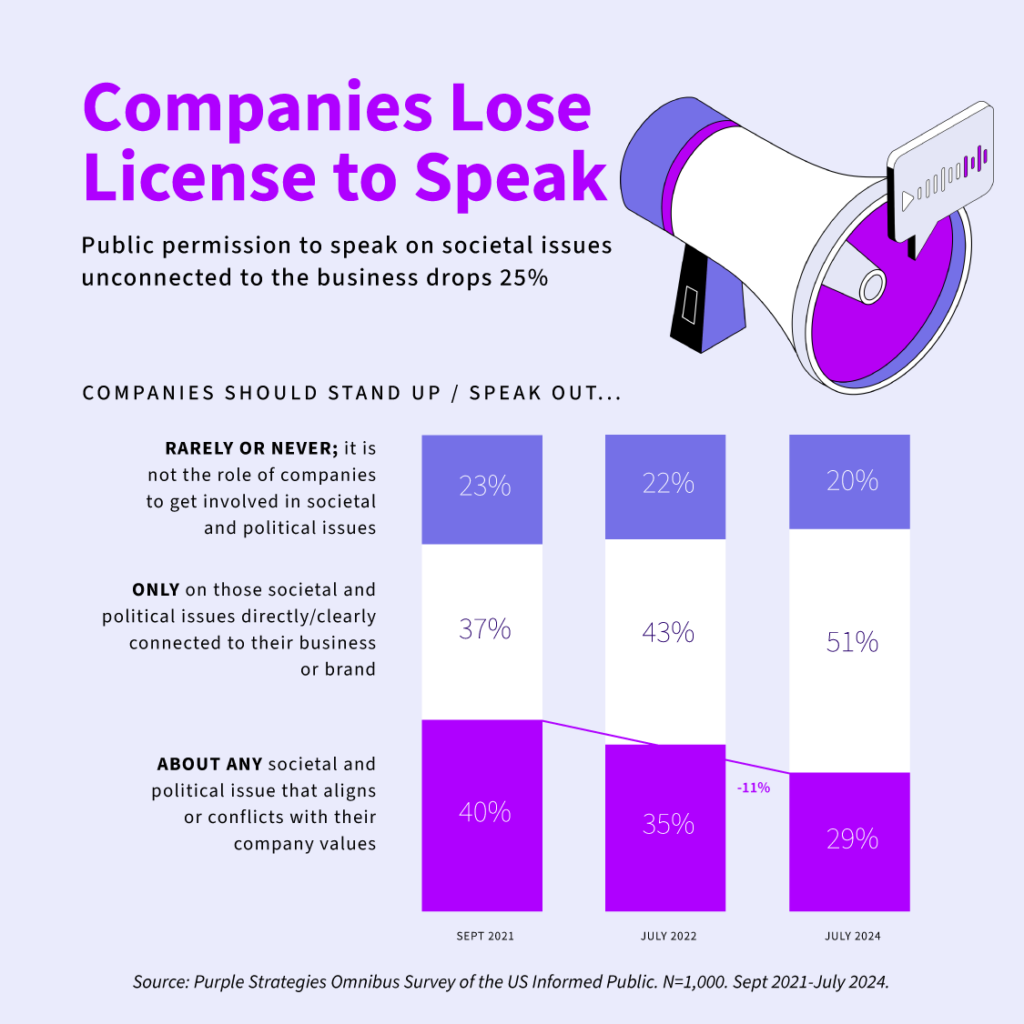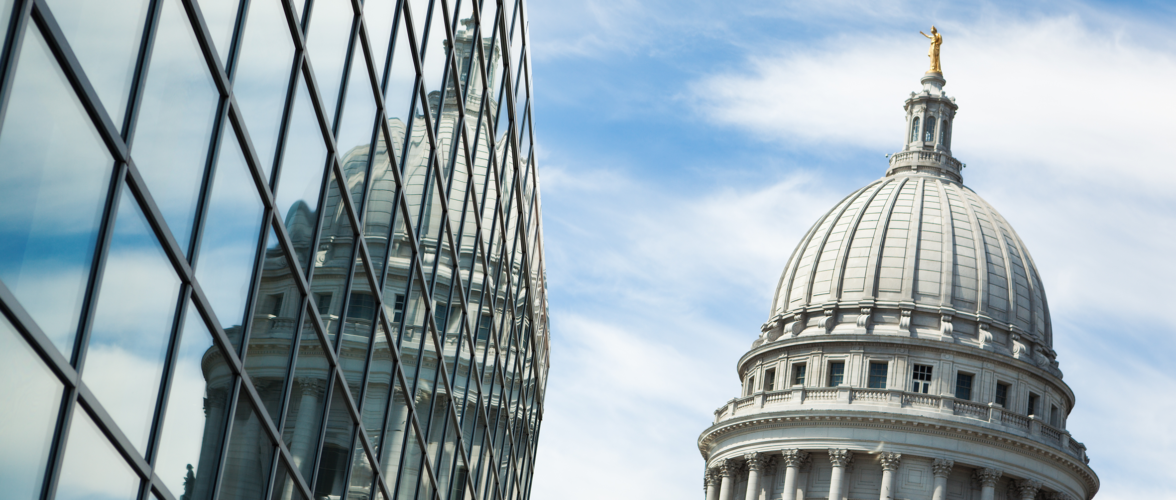By: Anya Benenson
Many corporate leaders are likely celebrating the Supreme Court’s recent decision to overturn the case that established Chevron deference; companies tend (understandably) to be displeased with the impact of stringent agency decisions on their operations. But while the end of Chevron may make it easier for some companies to do business, it won’t change the need to carefully manage corporate reputation.
Chevron was a forty-year precedent that required judges to defer to a federal agency’s reasonable interpretation of ambiguous statutes. The Court’s June 2024 decision in Loper Bright Enterprises v. Raimondo scales back federal agencies’ power to interpret the laws they administer in favor of the courts. The decision to end that practice is sure to have wide-reaching implications in industries ranging from healthcare to oil & gas, but consumers’ expectations that companies conform to their values remain a threat to corporate reputation.
While today’s DataPoint (below) tells us that public permission to speak on societal issues not connected to a company’s business has dropped, Purple’s research also shows that roughly 80% of the American public still believes that companies can and should speak out on social issues – a number that has not changed in over two years.
It is unsurprising, given that statistic, that consumer boycotts and viral social media attention can cause sustained reputational damage when corporations make public statements or business decisions contrary to their stakeholders’ values. Companies have encountered public backlash stemming from a range of values-based issues from both sides of the political spectrum.
Reputation challenges may come in the form of a labor dispute or a boycott in response to a company’s public position (or silence) on a hot-button issue. In view of consumers’ beliefs that companies should speak out about social issues, meeting stakeholder expectations while protecting corporate reputation can be a difficult needle to thread.
The shift away from strict, agency-led federal rulemaking likely to result from the end of Chevron may create opportunities for corporations to operate with more freedom, but not without risk to their reputations. Business decisions contrary to stakeholder values remain likely to activate consumer and employee activism. That potential backlash – coupled with a media landscape that can be hostile to corporate interests – remains a significant threat to corporate reputation that can’t be cured by a weakened administrative state.
DataPoint

While a majority of the public (80%) thinks companies can and should stand up / speak out on issues – and that net number has not changed over the last three years – the proportion who think companies can speak on ANY issue that aligns or conflicts with their values has dropped 10 points in 2024 – with public sentiment shifting toward expecting companies to limit their engagement to issues connected to their business/brand.

 What does corporate leadership look like in a divided nation?
What does corporate leadership look like in a divided nation?  Waiting to Engage in D.C. Is the Most Expensive Mistake You’...
Waiting to Engage in D.C. Is the Most Expensive Mistake You’...  The Era of High-Stakes Uncertainty
The Era of High-Stakes Uncertainty  What Forces are Shaping the Future for CMOs?
What Forces are Shaping the Future for CMOs?